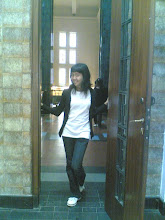ECONOMIC VS ECONOMIC AC
Railway plans to remove the economics class train is not very relevant to society because of the existence of economically weak economic to help residents in the incomes barely move. While the economic train freight train which is also called the people/ million people in great demand by the public, unless the economic train air-conditioning, people (passengers) at least glanced at it once a year even "try". If the clerk does not want to jostle them will choose the departure time for the sake of convenience.
The existence of economy-class trains are still loved by the users of railway has a mediocre income, while the presence of AC for the economic train railway users who do not want to sweat, not to be disturbed hawkers and buskers. No wonder when they choose a more cozy. It appears that many enthusiasts are also economic train is operated while the AC when they have to spend more money from their wallets.
A railway train was operated either economics, economic air conditioning, etc. Need to keep its existence and needed officers to warn/ giving sanction to the passenger who made a scribble on the body of the train, checking tickets of passengers, sits on the roof of the train and who deliberately the train doors.
The existence of economy-class train does not need to be deleted, because it will make a lot of disappointed passengers plus a car but need to maintain passenger comfort during the journey or additions to the schedule departure time trains need to be reviewed. Railway officials and Poluska (railway police) are directly involved if need be one officer in each carriage. Increase in railway fares in economy class there should be no increase, but to train air-conditioning needs to be reviewed and disseminated to the public. Ticket examiners must act decisively when there are passengers who do not have tickets for whatever reason.
Business English 2




